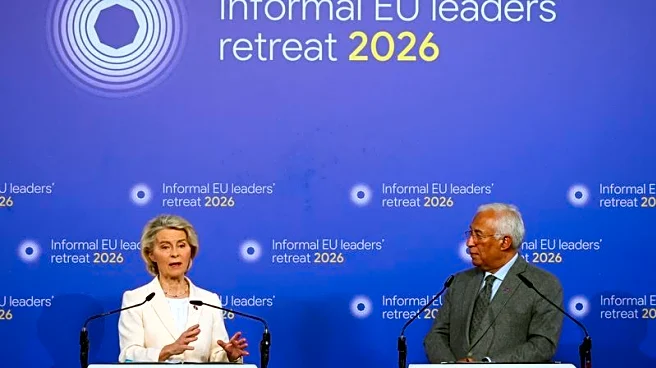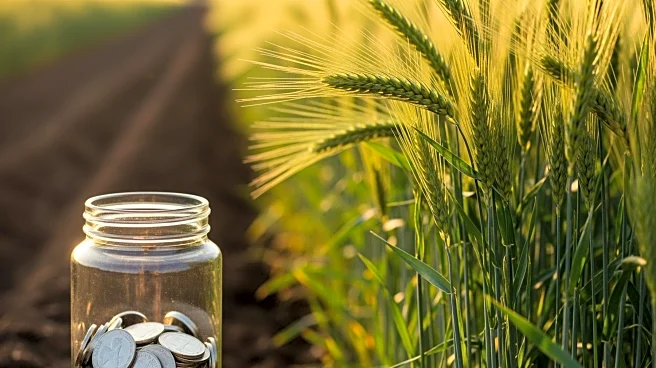What's Happening?
The Millennium Seed Bank at the Royal Botanic Gardens Kew in England is marking its 25th anniversary. The facility, which opened in 2000, holds over 2.5 billion wild plant seeds from around 40,000 species, stored in conditions designed to prevent extinction.
The seeds are preserved in sealed glass jars and foil packets at temperatures of minus 20 degrees Celsius. The bank has become a global partnership involving 279 organizations across more than 100 countries, supporting projects to reintroduce native species and restore damaged habitats. The bank has also trained over 3,000 scientists from 70 countries in seed collection and storage techniques. To further its work, Kew has launched a 30 million pound ($40 million) Seeds Future Fund to support new research and partnerships worldwide.
Why It's Important?
The Millennium Seed Bank plays a crucial role in protecting biodiversity, which is increasingly important as the global population is expected to grow by 2 billion by 2050, while agricultural land becomes scarce. The genetic diversity preserved in the seed bank offers protection against disease, climate change, and other threats. This initiative is vital for maintaining the diversity of life on Earth, providing a safeguard against the extinction of nearly half of all flowering plants. The seed bank's efforts to train scientists globally and its partnerships aim to build conservation capacity worldwide, helping to combat biodiversity loss and climate change.
What's Next?
The next 25 years for the Millennium Seed Bank will focus on utilizing the preserved seeds to restore natural habitats and combat biodiversity loss and climate change. The Seeds Future Fund will support new research and partnerships, expanding the bank's impact globally. Researchers are also developing cryopreservation methods for tropical plants that cannot survive freezing, using liquid nitrogen to preserve tissues at lower temperatures. These efforts will enhance the bank's ability to protect and restore ecosystems worldwide.
Beyond the Headlines
The ethical and cultural dimensions of the Millennium Seed Bank's work are significant, as it represents a commitment to preserving the planet's biodiversity for future generations. The initiative highlights the importance of international collaboration in addressing global environmental challenges. The seed bank's role in training scientists and building conservation capacity underscores the need for shared knowledge and resources in the fight against biodiversity loss.

















